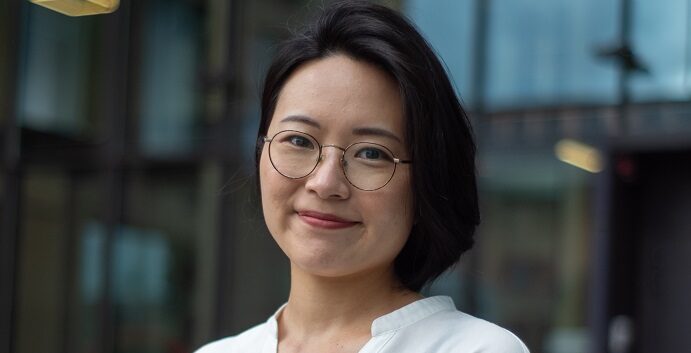Yuko Mori’s doctoral research shows that bullied people are at higher risk of attempting suicide
INVEST resarcher Yuko Mori conducted a large international school survey for her doctoral dissertation in child psychiatry. The research showed that around 5% of young people had attempted suicide. Students who had been victims of both cyberbullying and traditional bullying were the most likely to have attempted suicide. The survey also found that around a third of young people feel unsafe at school and that young people rarely seek professional help for their mental health problems.
Yuko Mori’s dissertation examined the main mental health challenges faced by young people in Asian and European countries. The study looked at issues related to school safety and help-seeking behavior for mental health problems, as well as the link between cyberbullying and suicide attempts.
Mori’s doctoral research involved a large-scale school survey using comparable methods across countries. It is the first large-scale international study to examine the connection between cyberbullying and suicide attempts.
“The prevalence of attempted suicide was 4.8%, with a higher rate for girls. Students who had been victims of both cyberbullying and traditional bullying had the highest risk of attempted suicide,” says Mori.
A third of young people feel unsafe at school
Yuko Mori also examined perceived school safety among 21,688 young people aged 13-15 from China, Finland, Greece, India, Indonesia, Iran, Israel, Japan, Lithuania, Norway, Russia, Singapore, Vietnam and Finland.
The survey found that more than 31% of young people felt unsafe at school.
“Among the countries compared, girls in Finland were the most likely to feel safe at school, with only 11.5% of respondents feeling unsafe at school. In Japan, the corresponding figure was 69.8%,” says Mori.
Boys were least likely to feel unsafe at school in Norway (7.7%) and in Japan most likely (68.2%).
“Bullying victimization, mental health problems and lack of teacher support all affect whether young people feel safe at school.”
Many mental health problems start during adolescence
Gathering global mental health data from young people is important because many mental health problems start in adolescence. However, little reliable data has been produced in the past on differences in mental health among young people in different countries and cultures.
“Perception of mental health problems, the stigma surrounding mental health, and the approach to mental health care can vary significantly across different countries. International comparative research on adolescent mental health is important to understand how common these problems are and how we can reduce them,” says Mori.
The extensive review of research for the dissertation showed that previous studies had found very different results on the proportion of young people who felt unsafe at school. Mori found it difficult to compare results between these studies because they used different ways of measuring and analysing student safety.
Young people with mental health problems rarely seek professional help
Yuko Mori’s doctoral research also found that young people, particularly in lower-income countries, rarely sought professional help for their mental health problems. In Finland, around a quarter of girls with severe mental health problems seek professional help. Girls were more likely than boys to seek help.
Yuko Mori’s dissertation was conducted as part of the Eurasian Child Mental Health Study coordinated by the Research Centre for Child Psychiatry at the University of Turku, which looks at the well-being and mental health of young people in different countries.
The study highlights the importance of creating safer school environments and providing better mental health support for young people.
“This is crucial if young people are to thrive at this critical stage of their development. We should provide mental health programmes in schools and implement anti-bullying initiatives and digital interventions to support young people globally,” concludes Mori.

